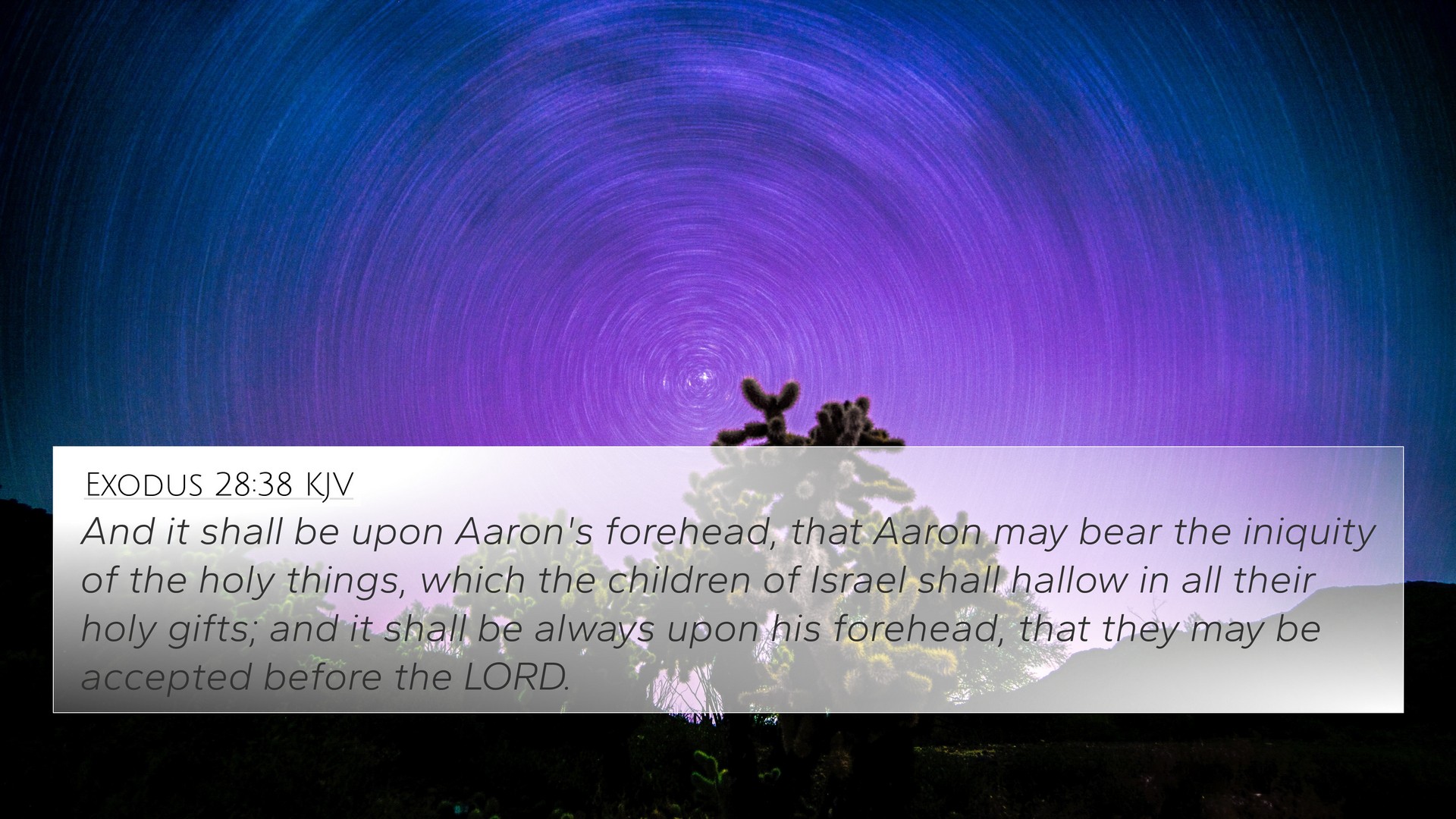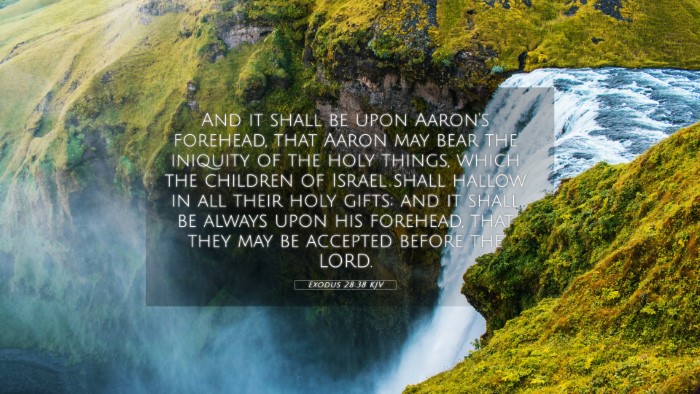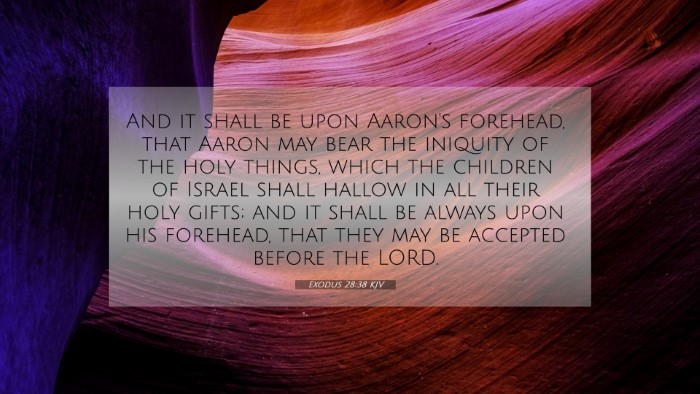This section features a detailed cross-reference designed to enrich your understanding of the Scriptures.
Below, you will find carefully selected verses that echo the themes and teachings related to Exodus 28:38 KJV. Click on any image to explore detailed analyses of related Bible verses and uncover deeper theological insights.
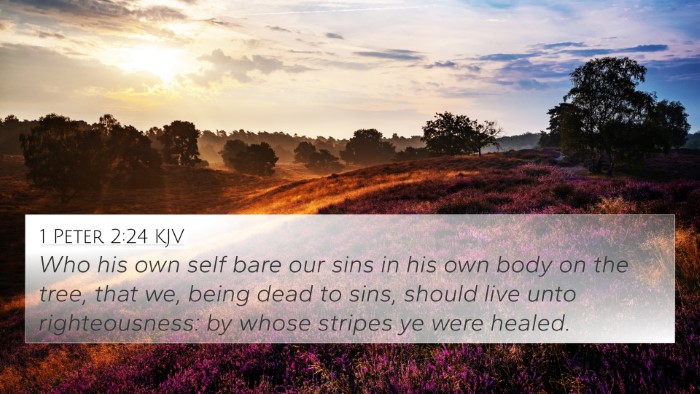 1 Peter 2:24 (KJV) »
1 Peter 2:24 (KJV) »
Who his own self bare our sins in his own body on the tree, that we, being dead to sins, should live unto righteousness: by whose stripes ye were healed.
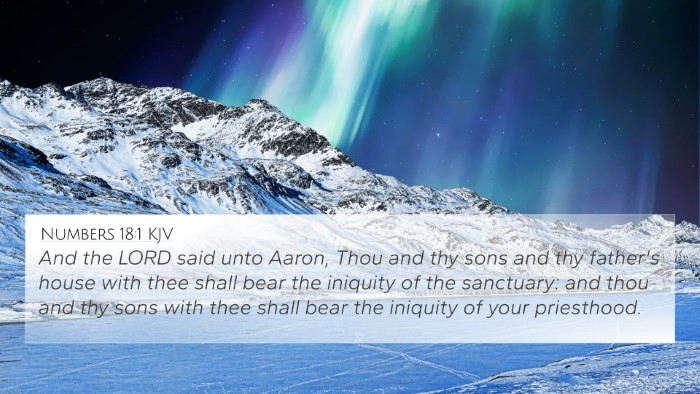 Numbers 18:1 (KJV) »
Numbers 18:1 (KJV) »
And the LORD said unto Aaron, Thou and thy sons and thy father's house with thee shall bear the iniquity of the sanctuary: and thou and thy sons with thee shall bear the iniquity of your priesthood.
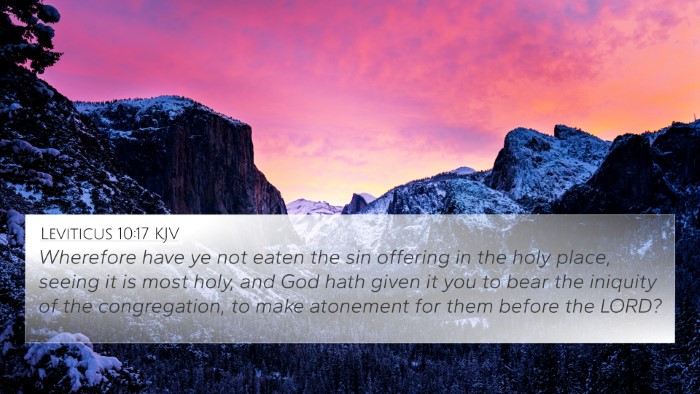 Leviticus 10:17 (KJV) »
Leviticus 10:17 (KJV) »
Wherefore have ye not eaten the sin offering in the holy place, seeing it is most holy, and God hath given it you to bear the iniquity of the congregation, to make atonement for them before the LORD?
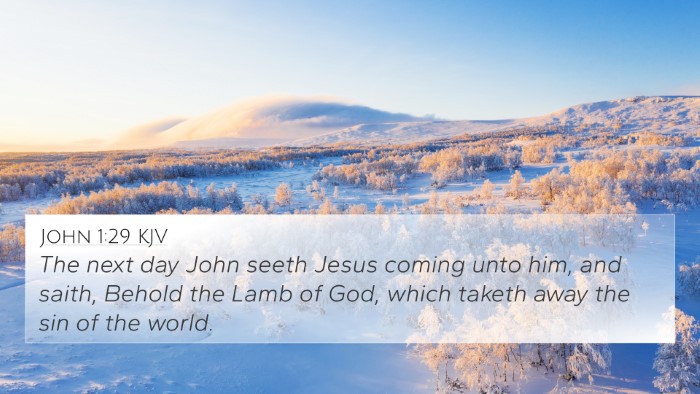 John 1:29 (KJV) »
John 1:29 (KJV) »
The next day John seeth Jesus coming unto him, and saith, Behold the Lamb of God, which taketh away the sin of the world.
 Hebrews 9:28 (KJV) »
Hebrews 9:28 (KJV) »
So Christ was once offered to bear the sins of many; and unto them that look for him shall he appear the second time without sin unto salvation.
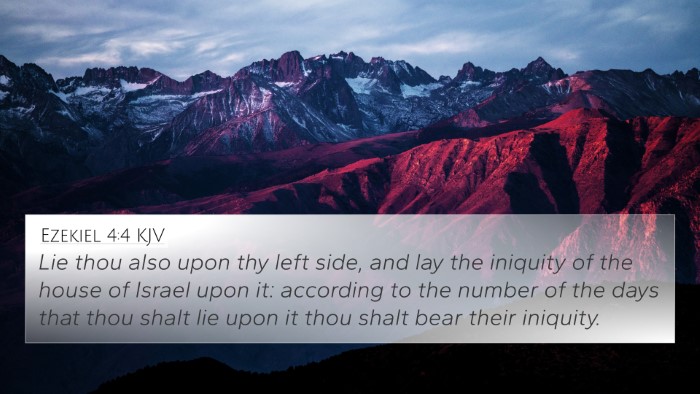 Ezekiel 4:4 (KJV) »
Ezekiel 4:4 (KJV) »
Lie thou also upon thy left side, and lay the iniquity of the house of Israel upon it: according to the number of the days that thou shalt lie upon it thou shalt bear their iniquity.
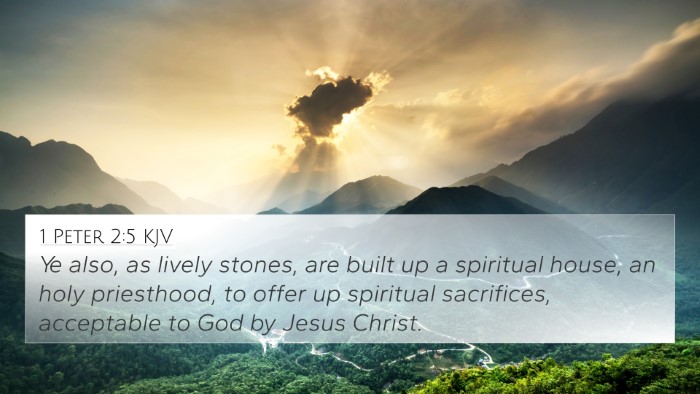 1 Peter 2:5 (KJV) »
1 Peter 2:5 (KJV) »
Ye also, as lively stones, are built up a spiritual house, an holy priesthood, to offer up spiritual sacrifices, acceptable to God by Jesus Christ.
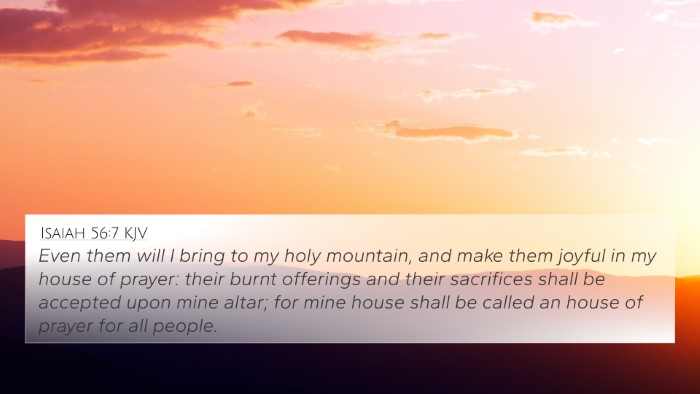 Isaiah 56:7 (KJV) »
Isaiah 56:7 (KJV) »
Even them will I bring to my holy mountain, and make them joyful in my house of prayer: their burnt offerings and their sacrifices shall be accepted upon mine altar; for mine house shall be called an house of prayer for all people.
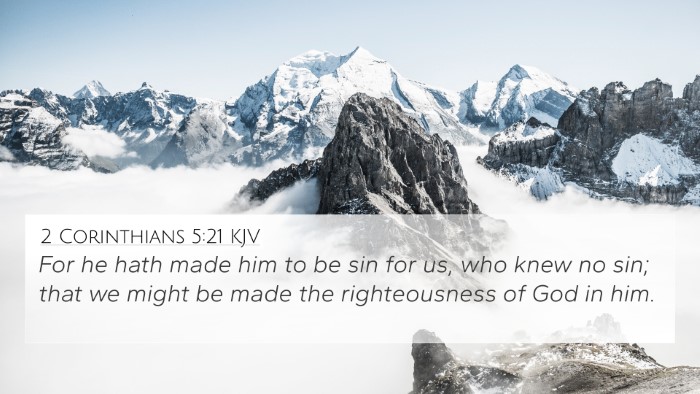 2 Corinthians 5:21 (KJV) »
2 Corinthians 5:21 (KJV) »
For he hath made him to be sin for us, who knew no sin; that we might be made the righteousness of God in him.
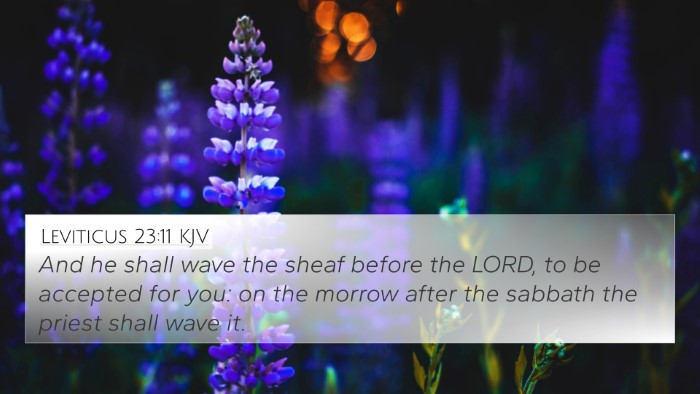 Leviticus 23:11 (KJV) »
Leviticus 23:11 (KJV) »
And he shall wave the sheaf before the LORD, to be accepted for you: on the morrow after the sabbath the priest shall wave it.
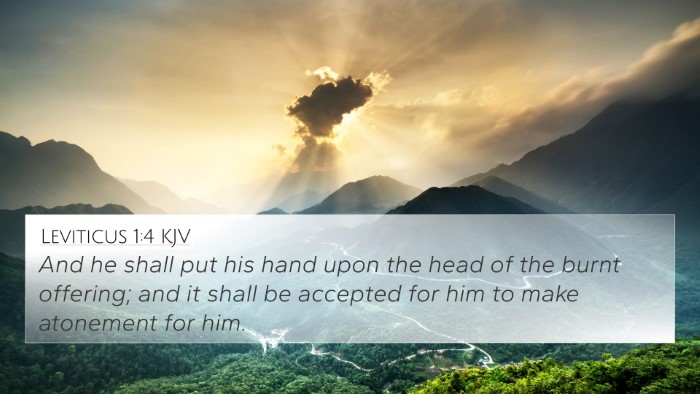 Leviticus 1:4 (KJV) »
Leviticus 1:4 (KJV) »
And he shall put his hand upon the head of the burnt offering; and it shall be accepted for him to make atonement for him.
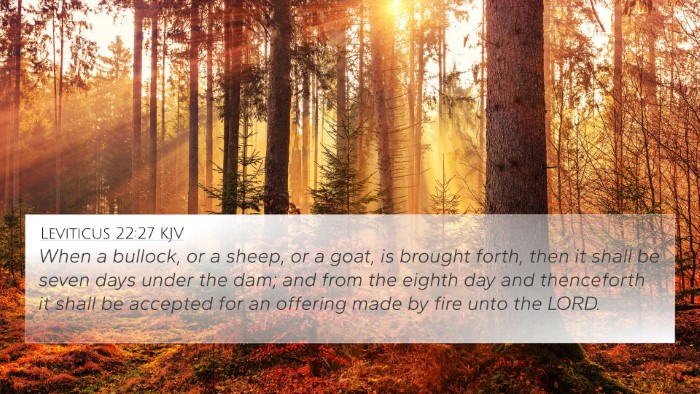 Leviticus 22:27 (KJV) »
Leviticus 22:27 (KJV) »
When a bullock, or a sheep, or a goat, is brought forth, then it shall be seven days under the dam; and from the eighth day and thenceforth it shall be accepted for an offering made by fire unto the LORD.
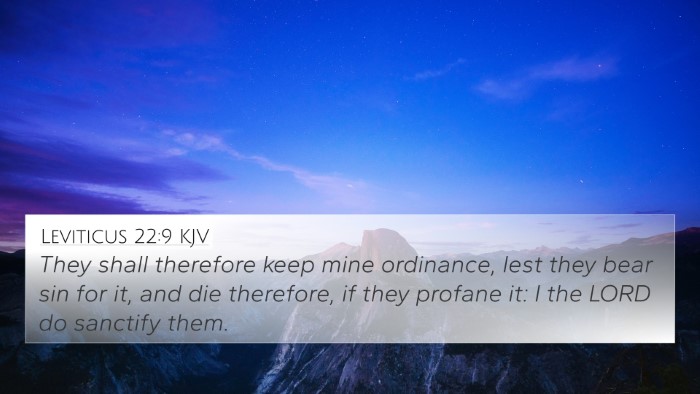 Leviticus 22:9 (KJV) »
Leviticus 22:9 (KJV) »
They shall therefore keep mine ordinance, lest they bear sin for it, and die therefore, if they profane it: I the LORD do sanctify them.
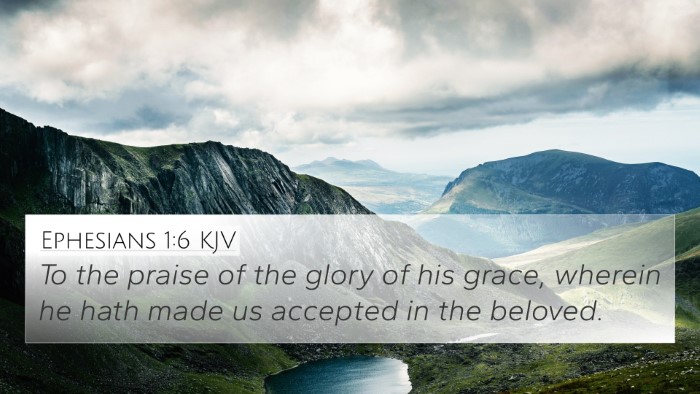 Ephesians 1:6 (KJV) »
Ephesians 1:6 (KJV) »
To the praise of the glory of his grace, wherein he hath made us accepted in the beloved.
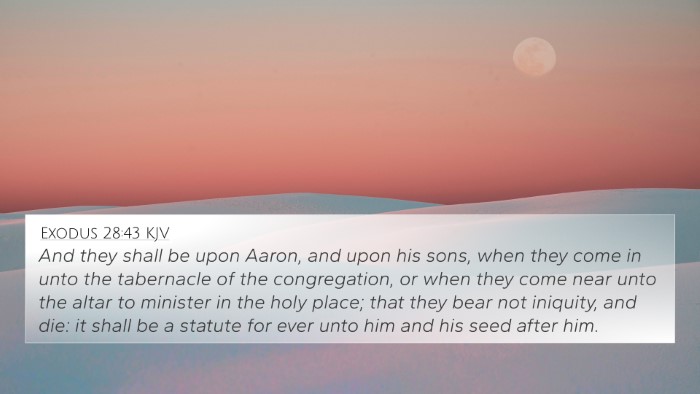 Exodus 28:43 (KJV) »
Exodus 28:43 (KJV) »
And they shall be upon Aaron, and upon his sons, when they come in unto the tabernacle of the congregation, or when they come near unto the altar to minister in the holy place; that they bear not iniquity, and die: it shall be a statute for ever unto him and his seed after him.
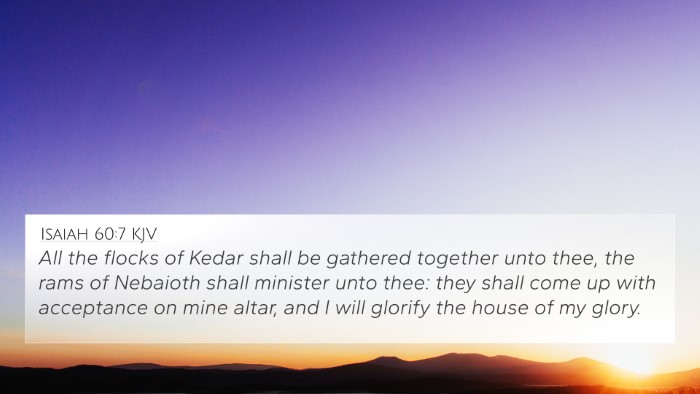 Isaiah 60:7 (KJV) »
Isaiah 60:7 (KJV) »
All the flocks of Kedar shall be gathered together unto thee, the rams of Nebaioth shall minister unto thee: they shall come up with acceptance on mine altar, and I will glorify the house of my glory.
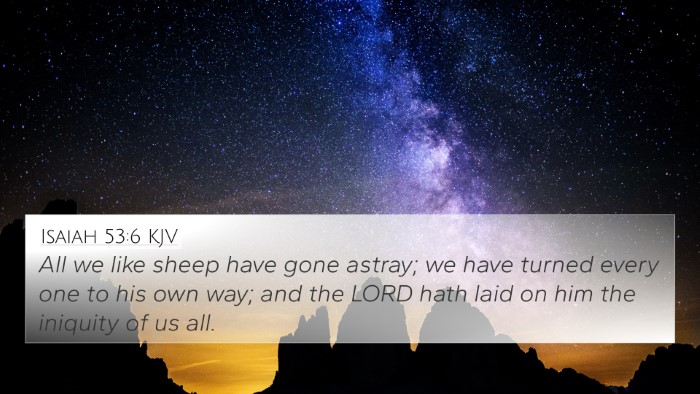 Isaiah 53:6 (KJV) »
Isaiah 53:6 (KJV) »
All we like sheep have gone astray; we have turned every one to his own way; and the LORD hath laid on him the iniquity of us all.
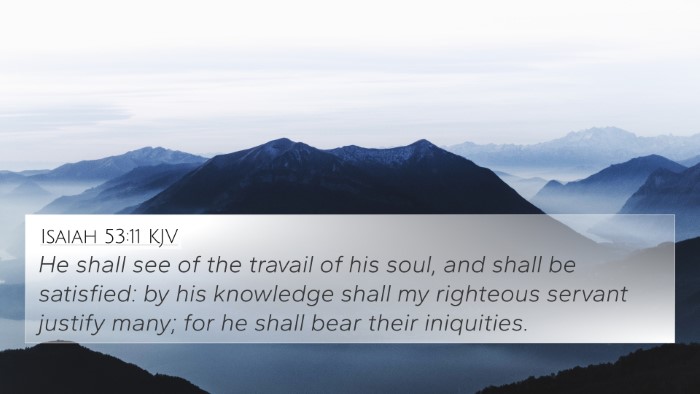 Isaiah 53:11 (KJV) »
Isaiah 53:11 (KJV) »
He shall see of the travail of his soul, and shall be satisfied: by his knowledge shall my righteous servant justify many; for he shall bear their iniquities.
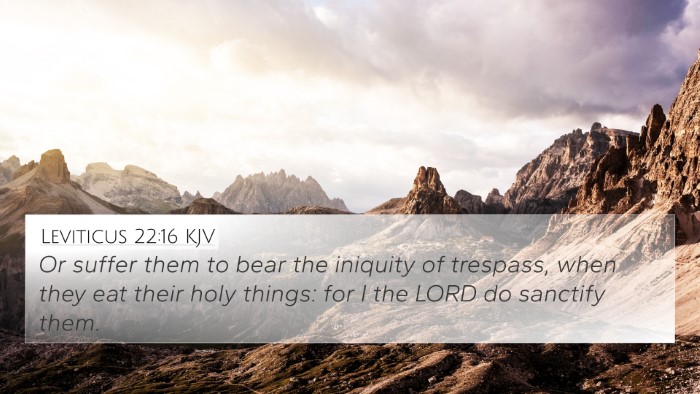 Leviticus 22:16 (KJV) »
Leviticus 22:16 (KJV) »
Or suffer them to bear the iniquity of trespass, when they eat their holy things: for I the LORD do sanctify them.
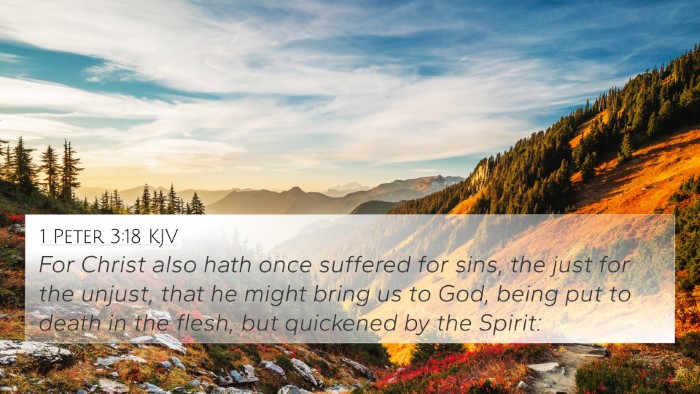 1 Peter 3:18 (KJV) »
1 Peter 3:18 (KJV) »
For Christ also hath once suffered for sins, the just for the unjust, that he might bring us to God, being put to death in the flesh, but quickened by the Spirit:
